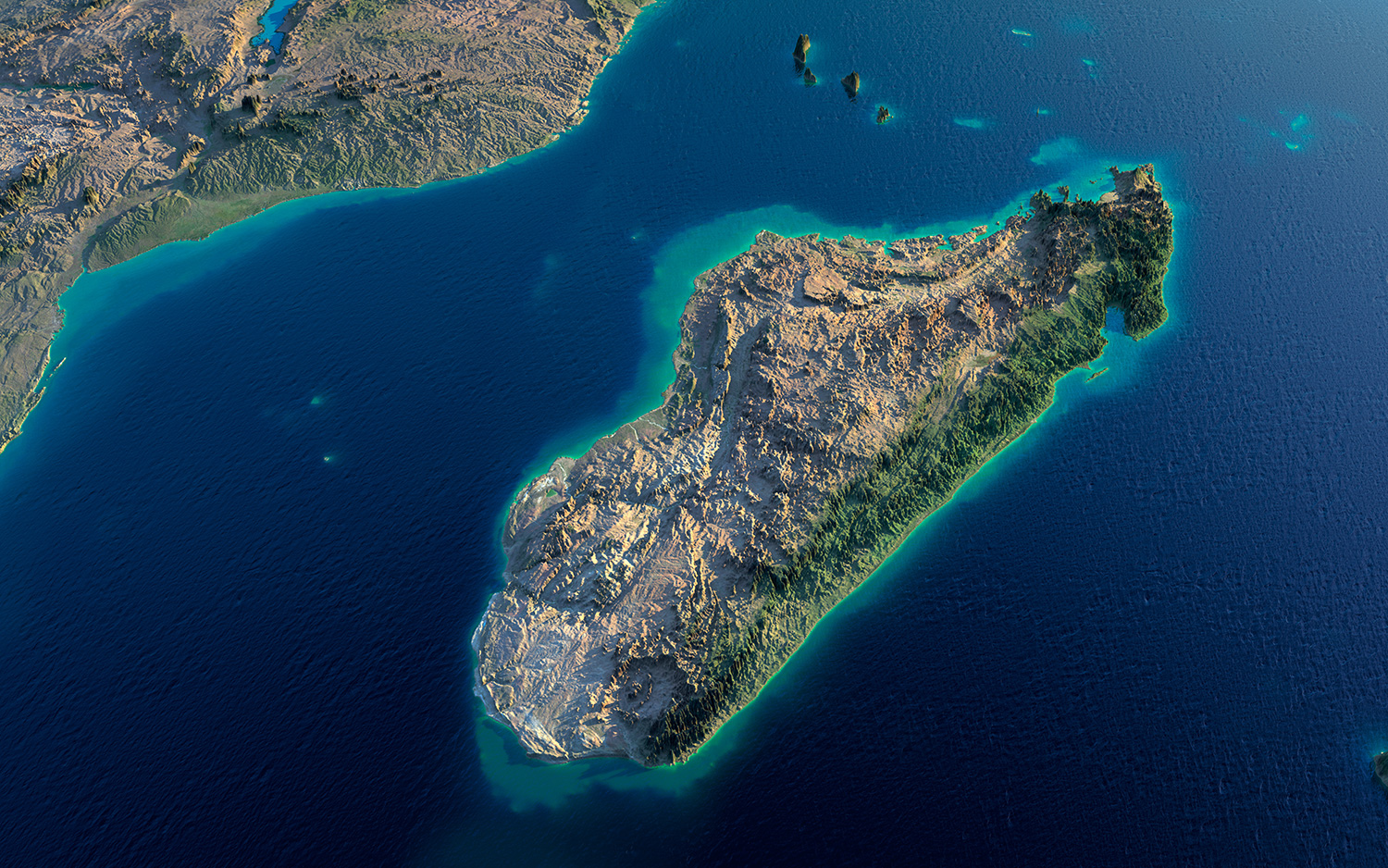New Ocean Current Discovered Off the Coast of Madagascar

A previously unknown ocean current was recently discovered "by accident" off the coast of Madagascar, a rare find in the 21st century.
The newfound Southwest Madagascar Coastal Current could help researchers better predict the effects of climate change, saidresearchers involved in the study. [The World's Weirdest Weather]
The world's circulation system
Ocean currents are part of a giant circulation system that moves water, nutrients and heat around the globe. Though sailors had long known of these oceanic conveyor belts, the first truly systematic description of global currents was published in "The Physical Geography of the Sea" (Harper & Brothers, 1855) by Matthew Fontaine Maury, the head of the U.S. Navy's Depot of Charts and Instruments.
Maury not only compiled data on current direction and strength using sailors' logbooks, but he also discovered new currents by tossing messages in bottles out to sea, then tracking where they wound up, according to the Woods Hole Oceanographic Institution.
But finding completely unknown currents in modern times is rare.
"I think we've discovered most of the major currents. One of the reasons why this one was not known is that the region has been very much undersampled," Marjolaine Krug, study co-author and a researcher at the Council for Scientific and Industrial Research in South Africa, told Live Science.
The Southwest Madagascar Coastal Current was a missing piece in scientists' understanding of the world's climate. And the researchers stumbled upon it by accident, they said.
Sign up for the Live Science daily newsletter now
Get the world’s most fascinating discoveries delivered straight to your inbox.
"Like any research discovery, there is a bit of luck involved," Krug said.
The team, which consisted of South African, Malagasy and French researchers, was investigating the strip of ocean between Mozambique and Madagascar, known as the Mozambique Channel. They noticed that there was water coming into the channel that couldn't be explained by other known flow sources. Looking at satellite imagery, they discovered a completely new current carrying water along the Madagascar coast and then toward Earth's poles.
In oceanic terms, the Southwest Madagascar Coastal Current is fairly small: At only 62 miles (100 kilometers) long and 330 yards (300 meters) deep, it transports about 264 million gallons (1.3 gigaliters) of warm, salty water a second, or the equivalent of more than 500 Olympic swimming pools' worth of water.
But the current's location, rather than its size, makes it vital in understanding the world's oceans, the researchers said.
The Mozambique Channel feeds the Agulhas Current, one of the strongest currents in the world. The Agulhas Current affects the path of tropical storms and carries heat toward higher latitudes, according to a 2016 Nature study. (The Agulhas Current also posed a challenge for Portuguese sailors circumnavigating Africa to get to India in the 15th century, according to oceancurrents.com.)
"The Agulhas is the equivalent of the Gulf Stream, but for [the] Southern Hemisphere," Krug said.
So understanding the sources of the mighty Agulhas could help scientists better predict the effects of climate change, Krug said.
Krug said she suspects that other unknown currents might be swirling in the ocean. And even though we have discovered most of the ocean's currents, there is a great deal we do not know, she said.
"There is still so much we have to discover about the connectivity of the ocean system," Krug said. "And while we might have a good knowledge of most of the currents, there is still so much to be discovered about how these currents change."
The study was published in the journal Geophysical Research Letters earlier this year.
Sarah Wild is a science journalist and a regular contributor to Live Science and Space.com. She is the author of "Searching African Skies: The Square Kilometre Array", "Innovation: Shaping South Africa through Science" and "South Africa's Quest to Hear the Songs of the Stars." Wild was the winner of the Siemens pan-African Profile Awards for science journalism in 2013 and received the Dow Technology and Innovation Reporting award in 2015.









